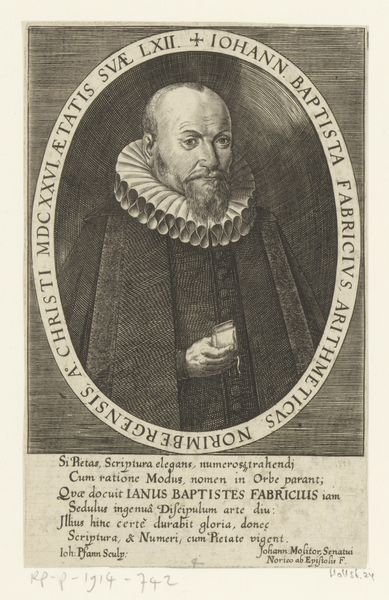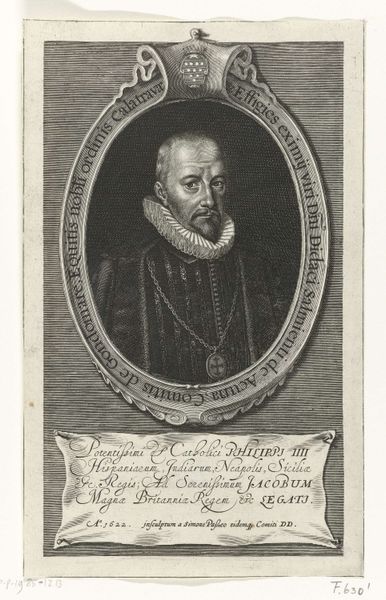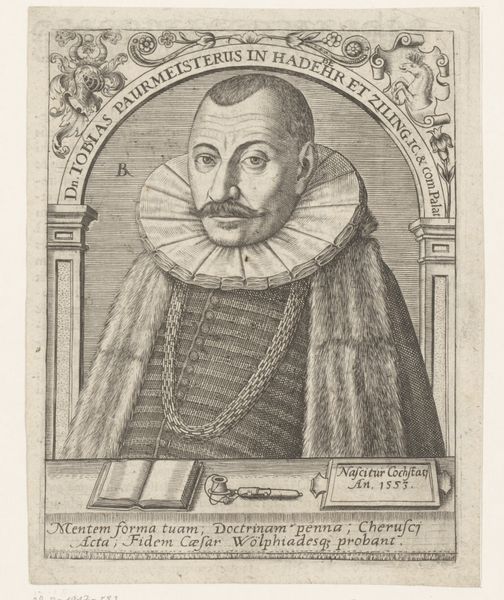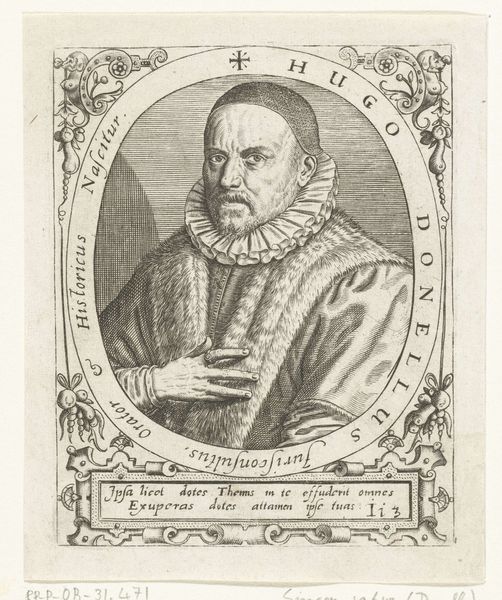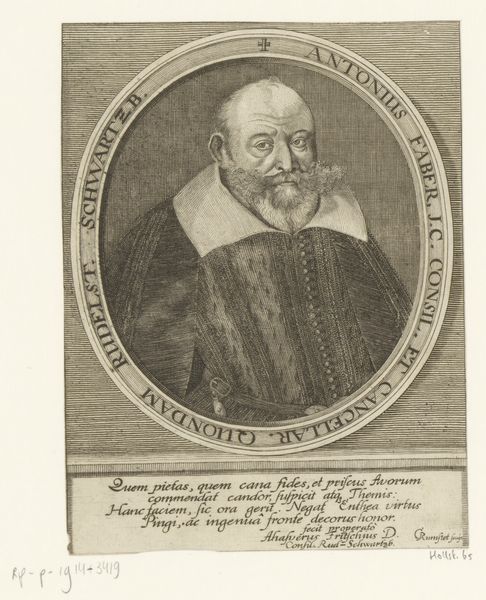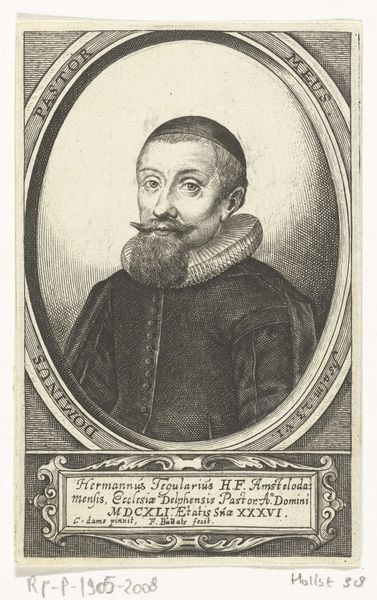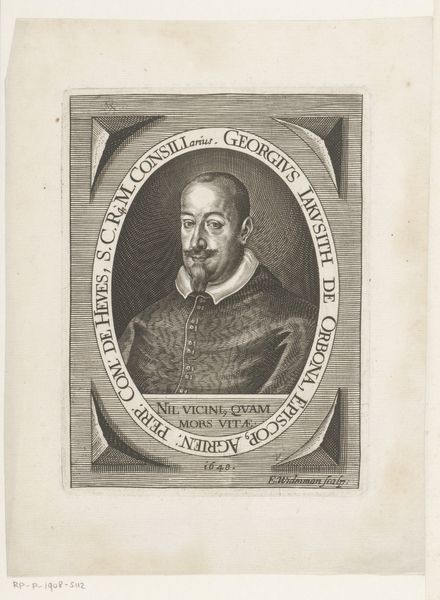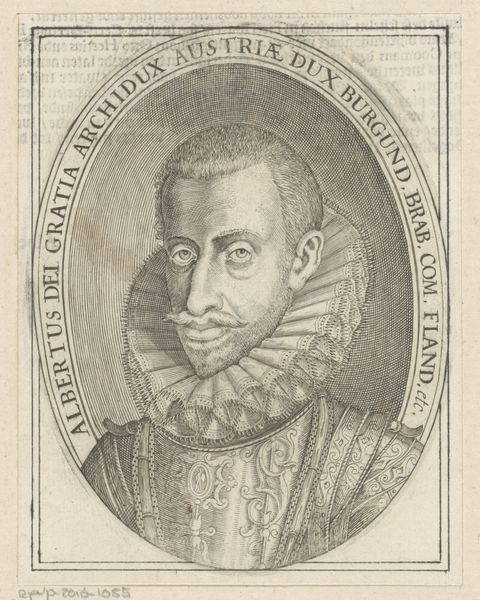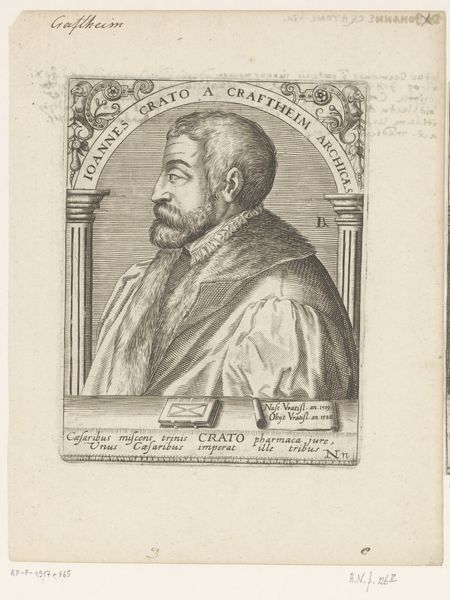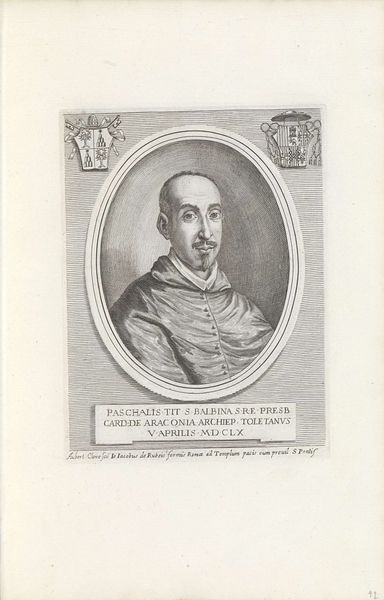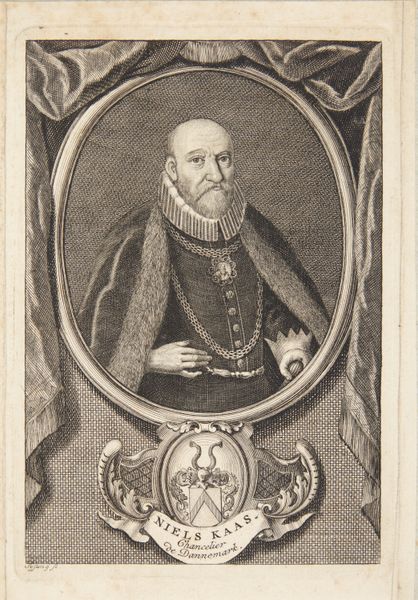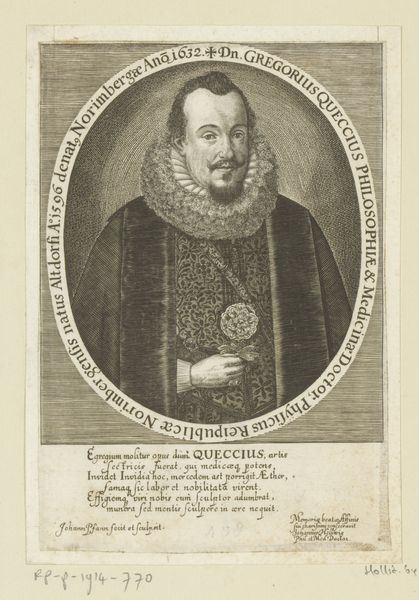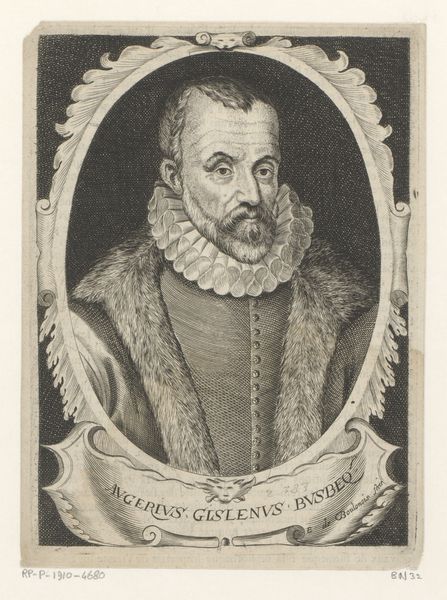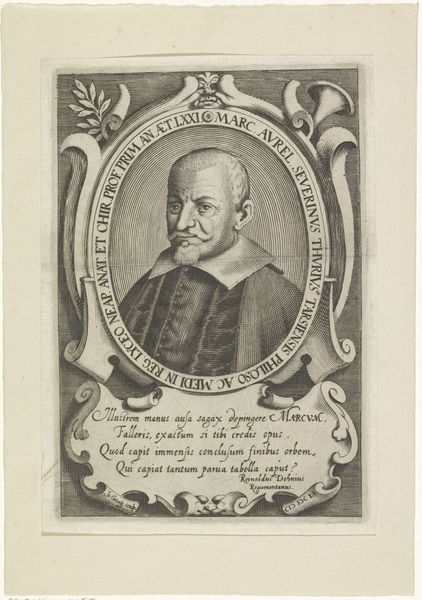
engraving
#
portrait
#
baroque
#
old engraving style
#
caricature
#
portrait reference
#
portrait drawing
#
engraving
Dimensions: height 140 mm, width 100 mm
Copyright: Rijks Museum: Open Domain
Cornelis Galle I etched this portrait of Pierre de Belloy, a theologian, capturing him at the age of 47. The cross above Belloy's head symbolizes his faith and position within the church. The laurel leaves encircling the portrait have roots stretching back to ancient Greece, where they crowned victors and poets, emblems of triumph and immortality. We see this motif echoed in Roman imperial imagery and Renaissance art, each time imbued with notions of honor and lasting legacy. However, the laurel, initially a symbol of pagan glory, was adopted into Christian iconography, representing divine favor. This metamorphosis echoes our subconscious tendency to imbue familiar forms with new meaning, demonstrating how cultural memory reshapes symbols across generations. Here, the laurel serves not only to honor Belloy, but also to engage viewers on a deep, subconscious level, tapping into our inherent understanding of the symbol's cultural weight. We witness a non-linear, cyclical progression of this emblem, resurfacing, evolving, and adapting across historical tapestries.
Comments
No comments
Be the first to comment and join the conversation on the ultimate creative platform.
